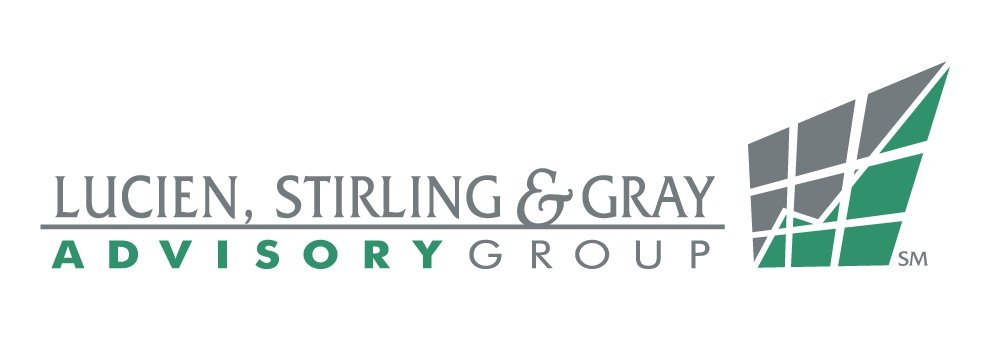King of the Raft
President’s Message
by - Thomas Twombly
artist - Daisy Lopez
About a month and a half ago, I got a short email message from a long-time client and friend in response to the message I had written for our second quarter report for this year.
“Your candor embracing your humility makes this one of the best you’ve ever written. Well done!”
As you might imagine, I was pleased with that feedback. But at the same time, I have found myself wondering ever since if I haven’t been humble enough in all my other efforts, such that that particular message stood out as so different. It’s with that thought in mind that I undertake this effort here.
I often wonder if “I don’t know” aren’t the three most underused words in business. I’m pretty sure they’re the least used words in the money management business, where bravado and outspoken confidence seem to rule. The certainty and assurance with which all kinds of analysts, portfolio managers, financial advisors, product wholesalers, and financial media pundits trumpet their specific predictions every quarter never seems to wane, even when they’ve repeatedly been proven wrong.
Apparently, perspectives that involve nuance, subtlety, uncertainty, and circumspection are uncool, and humility is unattractive in many spheres. So-called “strong men” seem to command the most attention these days as large numbers of people seek simple, resolute, unambiguous answers to complex, multi-faceted, ambiguous questions.
But that’s not the way the world really works. And that’s especially true during periods of disruption and rapid change. Taking a narrow, aggressive, unchanging stance is not the way to lead. It’s not the way to adapt and eventually to prosper. And it certainly isn’t the way to build a prudent investment portfolio.
At the end of August, I read an opinion piece by Brad Stullberg in the New York Times titled “Stop Resisting Change.” He added a new word to my personal lexicon – allostasis – or “stability through change.” He made the point that “the way to stay stable through the process of change is by changing”, and that “if you want to keep your footing, you’ve got to keep moving.”
Reading it reminded me of a perspective I have often shared in conversations regarding both the challenge and the reality of leading a so-called “balanced” life. It evoked an analogy from my adolescent years that I keep in mind for what that truly entails, at least from my experience. It doesn’t come easy. And it’s certainly not for the faint of heart. It demands constant change and concerted effort.
In my youth, my brothers and sister and cousins and I used to play “king of the raft” for hours on end, during the summer. We had a small home-made raft constructed of a 2 x 6 frame, 1 x 6 decking, with Styrofoam sheets underneath for floatation. It was just fine for calmly supporting two people quietly sunbathing. But when you added two, or three, or four more rambunctious teenagers around the edges, it began to submerge, and then get wet and slippery as waves washed over it. It also became highly unstable, prone to suddenly tipping, or to shooting quickly out from under our feet in one direction or another when our individual or collective weight shifted.
Maintaining your “balance” and being the last one standing on that raft required cat-like reflexes, constant movement, rapid adjustment to other people’s shifting weight, toes that could grip the tight spaces between the boards, a willingness to dive headlong towards the other side of the raft when everything suddenly tipped up, and no small amount of good fortune and the sheer determination to swim back and try again when you inevitably got pitched off. I think it was great training for life – and especially for the last few years.
We live in an unpredictable world, and other than death and taxes, nothing is certain. Everything is subject to change, often at a moment’s notice. The huge conundrum, and indeed the greatest temperamental challenge that all long-term investors have always had to confront is that the future we all invest in and for is unknowable.
On one hand, achieving the great goals of life, like funding a solid education for our children or grandchildren; ensuring our own financial security, independence, and dignity through a three-decade retirement; or building and leaving a personal, spiritual, and financial legacy for those we love, takes decades of dedication, planning and commitment to accomplish.
On the other hand, the only guarantee we can ever count on is that everything will change. All those intervening years, and every day that comprises them, will be fraught with uncertainty and ambiguity. We will never have all the information we want before having to make difficult choices. We’ll always be unsure of something. And often the things we think we are sure of will change without notice.
So, as unsatisfying as it can frequently be (not unlike what Winston Churchill once quipped about democracy - “it’s the worst possible system, except for all the alternatives”) broad diversification among a wide range of asset classes, periodic rebalancing, a stalwart long-term perspective, and frequent renewals of the vows to keep exercising patience, discipline, and faith in the future is still the most likely path we have to success. So, onward through the fog!
Thank you again for your continued confidence and trust.
Thomas G. Twombly
President

